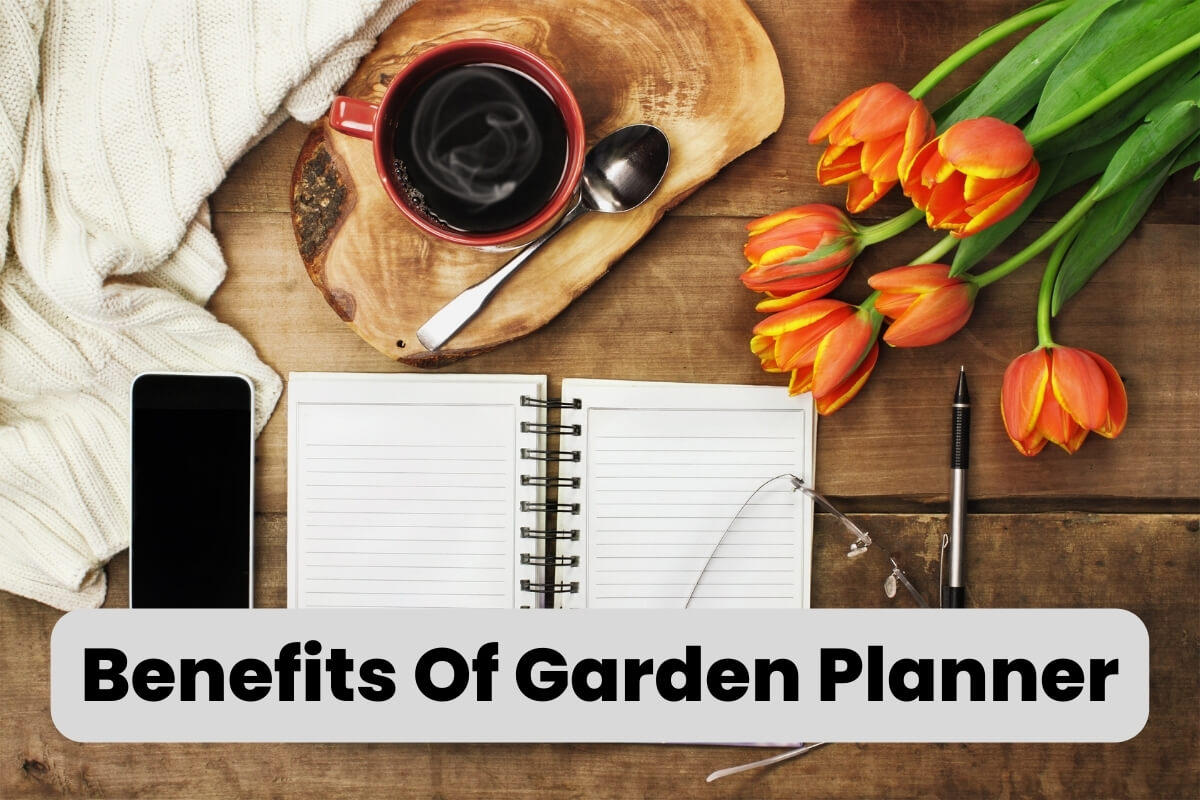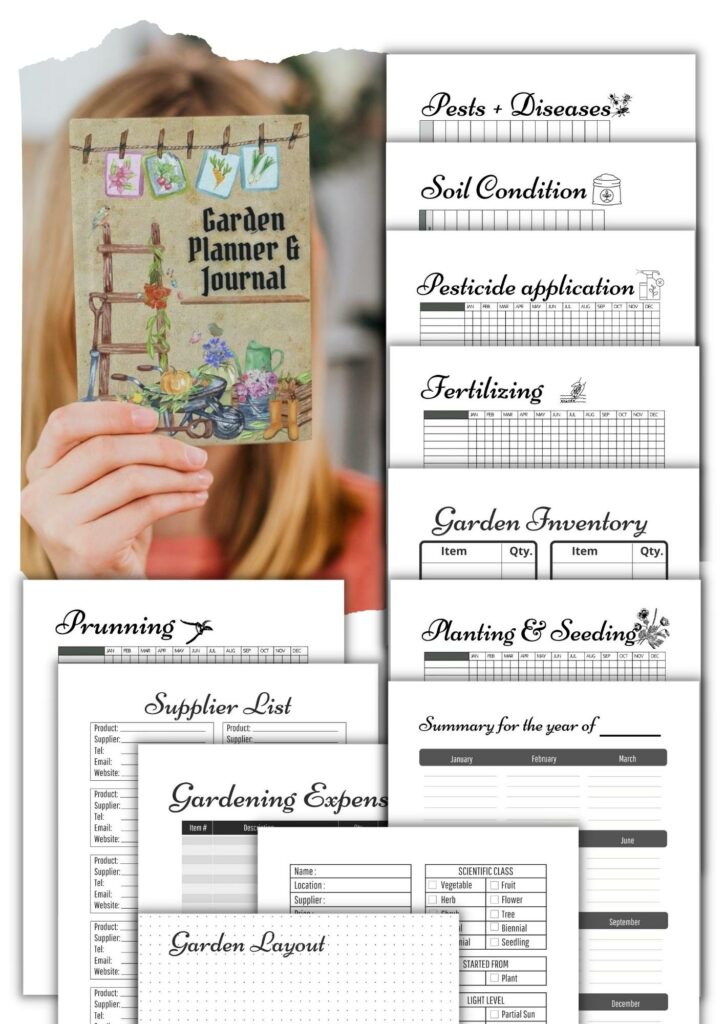
If you’re a gardening enthusiast, a garden planner can broaden your experience and improve your green thumb regardless of the type of garden you have (yard or balcony).
It is extremely easy. Simply keep a written record of your plants in any kind of notebook.
How to do this is not subject to any set guidelines. You can draw out your garden design, create a herbarium, record your watering schedule, take pictures of your garden, or write down your experiences with certain plants so that you can avoid them in the future. You can do everything that comes to mind.
You may keep track of what was sowed, planted, cared for, and harvested during the growing season by keeping a garden planner. As a result, you have complete control and are aware of the tasks that still need to be completed in the upcoming days and weeks.
Keep a garden planner to note any diseases and pests you come across, as well as the methods you employed to control them. You’ll gradually enhance your gardening skills if you take notes, eliminate guesswork, and follow a plan.
You may also record your daily, weekly, or monthly observations on your plants to track their development over the course of the year.
Note: Affiliate links may be used in this page. I may receive a small commission at no extra cost to you if you use my affiliate link. Full disclosure policy here.
Gardening planner benefits
You will know what to expect
Your notebook will assist you in knowing what to anticipate with the correct kinds of templates. You can keep a to-do list of important supplies, resources, and tools to buy as well as a record of how your garden should appear given the region you reside in. Nothing can genuinely take you by surprise when you know what to anticipate.
A gardening journal will keep you organized
The key to managing a successful garden is organization. You won’t need to struggle to remember everything you’re growing if you have printables like a monthly harvest calendar, seed organization chart, and seeding tracker (just to mention a few). You can also keep track of where you planted plants in your garden with the aid of a decent chart, tracker, and organizer template.
Take notes and observations
Another area that isn’t commonly considered yet has great potential is this one. Consider what you see in your garden as you frequently take notes and observe. Record the best-growing plants, any adjustments you might make for the future, and what worked. With each passing season, this will become more useful.
Use a gardening journal to help you learn along the way
Even the most experienced gardener will admit that there is always more to learn about gardening. By keeping a journal, you can gain knowledge as you go along and create a useful tool that you can use repeatedly. In general, your children can utilize a gardening notebook to guide them through their own gardening endeavors.
Our garden planners to discover

Gardening Expenses Log Book & Organizer Notebook: Undated Garden Planner Journal